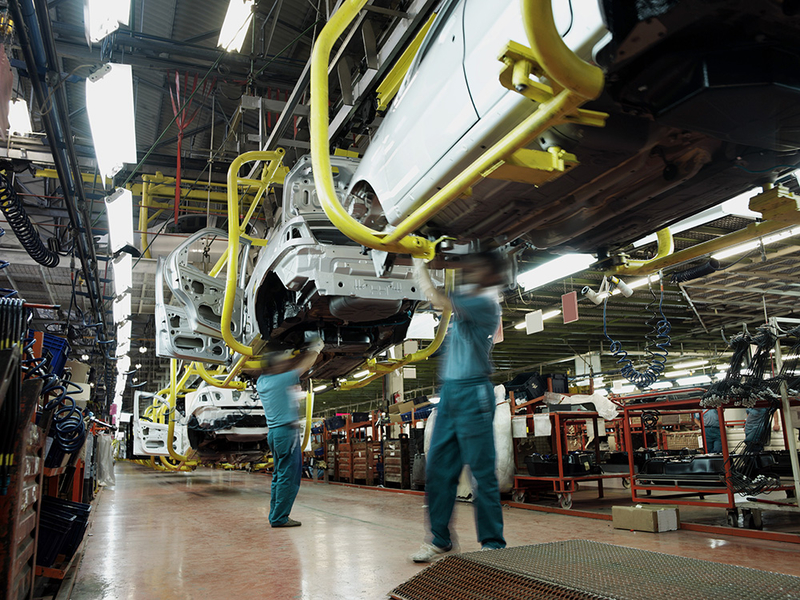Pirelli, placing sustainability in the picture
Carbon Neutrality and welfare are the key words of Pirelli’s new strategic plan. We spoke about this with Filippo Bettini Pirelli Sustainability and Future Mobility officer

Education, argued South African activist Nelson Mandela, is the most powerful weapon for changing the world. For sure, it is vital to enhance oneself and increase one's competitiveness. Today, more than ever, in an automotive industry where everything changes quickly, those who fail to upgrade, in other words stop developing or “evolving” are lost.
"For 25 years, our mission has been to create a culture within the automotive supply chain and support Italian companies so that they can compete at the highest levels on the domestic market as well as abroad," says Marco Mantoan, ANFIA Service consultancy and training director. Since 1996, ANFIA (Associazione Nazionale Filiera Industria Automobilistica – Italian Association of the Automotive Industry) has been offering contents focused on quality, environmental awareness, safety and ethics in the automotive sector. In the first 25 years of activities, ANFIA has expanded its range of services in line with the needs of the market and involved almost 3,000 companies and over 20,000 people in its activities, thus earning the title of "the country’s exclusive club of automotive culture and quality".
From its vantage point, ANFIA Service has observed the rapid and profound changes within the industry. "Since we took our first steps, a geological era has passed," admits Mantoan. - While at first many used to look up the term "globalization" in the encyclopaedia, now it is difficult to imagine any kind of competition that is not global. Added to this is the extraordinary technological evolution which, in just a few years, has transformed mobility". In all of this, training has become increasingly relevant. "At first, only a few large companies saw this as a potential lever for growth. Today, however, even microenterprises are interested in it. There are more regulatory obligations and several dedicated funds."
Requests for training and consultancy go in many directions. “Demand is increasing not only for updating technical skills, but also for so-called ‘soft skills’”, confirms Mantoan. – “Team building, quality, communication and so on are consolidated concepts in medium-large companies, much less so in smaller ones". For the near future made of Industry 4.0 policies, new power units, interconnection and so on, new skills will be required. “We are working on specific programs focused on 4.0 protocols, data analytics, cyber security and risk management," Marco Mantoan adds. – “Interest in the latter topic is growing. Even before the Covid emergency, the risks of the long supply chain were clear: think of the impact of unexpected events such as the 2004 tsunami, the Arab Spring, terrorist and cyber-attacks."

Customized industry training
ANFIA's proposals, therefore, are being modelled on current circumstances, as well as on new requirements, focusing on issues that have made their way in the priority agenda: "safety and sustainability - says Emanuela Pregnolato, economics and project manager at ANFIA. – As far as the latter topic is concerned, so far, the push from supranational institutions has mainly affected medium-large companies. However, if we want to build an integrated supply chain, the effects will inevitably reach smaller companies as well, and willingly or unwillingly, they will have to adapt to this process of social responsibility. Speaking of safety, on the other hand, there are compulsory programs, but they do not always prove to be effective in building a culture of risk prevention that pervades a company from the top level down".
Then there is the key issue of the rising electric mobility. "In this regard, we are working side by side with some associations to create specific projects of awareness, information and education that will involve companies as well as schools". Other areas of growing interest involve administrative activities, taxation and customs practices. “International trade agreements are constantly changing," Pregnolato explains. "Companies realize the need to be prepared and updated. Think of the Brexit, which has brought with it a load of operational issues."
Furthermore, the Covid19 pandemic has at the very least, created a greater awareness of the importance of digital instruments. Much remains to be done, however. Over the years, Italian companies in the automotive supply chain have become aware of the fact that there are fundamental skills that go beyond producing and selling," says Emanuela Pregnolato. – “It is necessary to evolve and change mentality, more difficult for smaller companies as they consider these issues as distant from their core business. As ANFIA Service, - she concludes - we can, we must, and we want to play our part in building a digital automotive supply chain that is safe, sustainable and always up-to-date with the latest developments in the sector".

Carbon Neutrality and welfare are the key words of Pirelli’s new strategic plan. We spoke about this with Filippo Bettini Pirelli Sustainability and Future Mobility officer
Transport prices are skyrocketing along with raw materials with inevitable repercussions on producers' price lists. The trend may be easing a little, but forecasts remain uncertain. We spoke about this with Fabio Bertolotti, director of Assogomma
While celebrating half a century in business Point S looks at the future aiming to become a multiservice vehicle assistance and maintenance network
